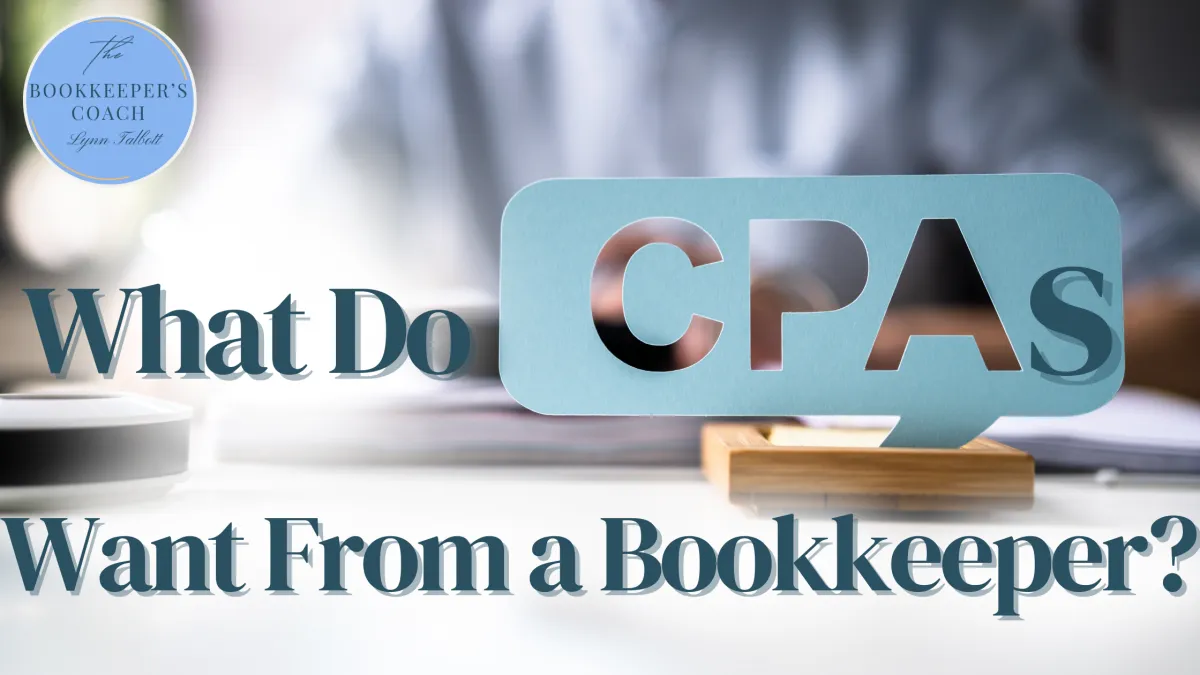The Bookkeeper's Blog
Home to some of the best knowledge nuggets savvy bookkeeping entrepreneurs need to know. Learn what you need to know about growing a successful firm, building a team of ahh-mazing bookkeepers, and more.

What Do CPAs Want From a Bookkeeper?
Tax season can be a stressful time for everyone, but a strong partnership between bookkeepers and CPAs can make all the difference. CPAs rely on bookkeepers to keep financial records organized and tax-ready, allowing them to focus on their primary role—tax preparation. So, what exactly do CPAs want in a bookkeeper? Here are the key things to keep in mind.
1. Tailor Each Client’s File
Every business has unique financial needs, and a one-size-fits-all approach doesn’t work when it comes to bookkeeping. CPAs appreciate bookkeepers who take the time to customize each client’s file, ensuring that financial records are structured in a way that best supports tax preparation. Whether it’s adjusting the chart of accounts (COA) or organizing financial reports, your ability to tailor files can make a CPA’s job much easier.
2. Understand the CPA’s Focus
CPAs are not focused on job costing, intricate details, or subaccounts. Their main goal is to complete tax preparations as efficiently as possible. While bookkeepers dive into the details of day-to-day financial transactions, CPAs prioritize tax compliance and financial reporting. Keeping this distinction in mind can help you provide CPAs with exactly what they need—clean, accurate books without unnecessary complexity.
3. Ensure Proper Tax Mapping of the Chart of Accounts
A well-organized Chart of Accounts (COA) is crucial for smooth tax preparation. CPAs expect bookkeepers to ensure that each COA is tax-mapped correctly. Misclassified accounts can cause unnecessary delays and additional work, so taking the time to align financial data with tax reporting requirements will help streamline the process.
4. Engage with the CPA as an Educator
Think of CPAs as educators rather than just service providers. Many CPAs are more than willing to share insights and help bookkeepers understand the reasoning behind specific tax-related requirements. Don’t hesitate to ask questions or seek clarification—this open dialogue will strengthen your working relationship and enhance the quality of financial reporting.
5. Maintain Open Communication
Keeping the CPA informed is key. Whether it's notifying them about a major financial change in a client’s business or asking for clarification on tax-related matters, regular communication ensures that everyone is on the same page. Proactively reaching out to CPAs can prevent last-minute issues and create a smoother workflow.
6. Provide Clean, Organized Books for Tax Prep
At the end of the day, CPAs want one thing from bookkeepers: clean, well-maintained books that allow them to complete tax returns quickly and accurately. Ensuring transactions are categorized correctly, reconciliations are complete, and financial reports are up to date will save CPAs valuable time and prevent unnecessary headaches.
Final Thoughts
Bookkeepers and CPAs play complimentary roles in financial management. By tailoring client files, understanding the CPA’s priorities, ensuring proper tax mapping, and fostering open communication, bookkeepers can become valuable partners in the tax preparation process. The goal is to work together efficiently, making tax season smoother for everyone involved.
By aligning your bookkeeping practices with what CPAs need, you’ll not only strengthen your professional relationships but also provide better service to your clients.

free guide & workbook
Vision to Victory:
Goal-Setting for Bookkeepers
Discover the goal-setting framework that helped me build and sell a million-dollar bookkeeping firm.
Don't let another year pass you by – it's time to turn your vision into victory.

© 2025, The Bookkeeper's Coach, llc

LinkedIn
Youtube
Facebook
Instagram